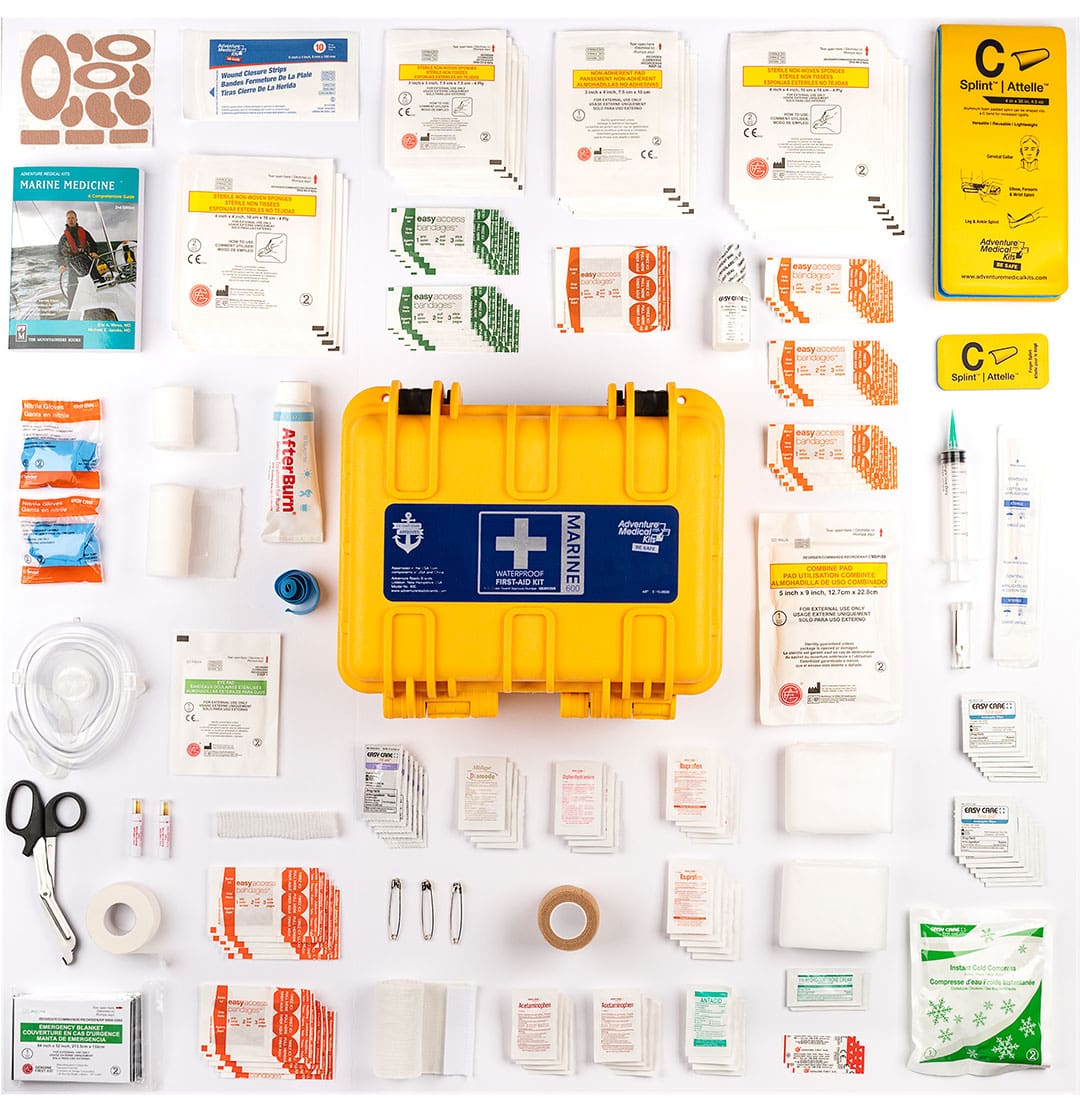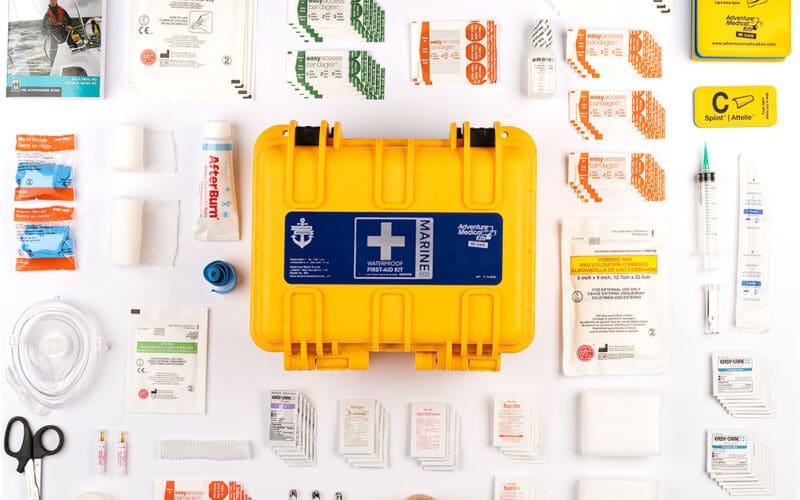
Editor’s Note: Beth VandeGeijin is a Nurse Practitioner with more than 25 years experience in internal medicine and is currently in a solo practice. She’s been cruising (Chesapeake Bay to Grenada) on her 45-foot Freedom sloop rig and is a member of the Seven Seas Cruising Association. We asked her about how voyagers might want to get ready for dealing with medical issues when offshore.
OV: As a voyager with medical training and experience, how much training do you think voyagers need?
BV: It often depends on where they are going. Many of the larger islands in the Caribbean and Mexico have really decent health care available. If one is island hopping, then basic first aide/CPR would be a recommendation. This assumes medical care could be obtained that same day. If one is planning a voyage to a remote area, then they should be comfortable with CPR with advanced first aide and plan to function independently (possibly for many days) until assistance arrives. I can’t emphasize enough to be preventative! That means knowing your crew, their limitations and avoid risky situations that may put one in a position that is beyond their ability to handle. For example, if you are doing a two-week non-stop offshore passage, one should have crew capable of handling potentially difficult situations and crew members themselves not becoming a liability. Accidents do happen, but if one’s physically unfit or has a medical condition that could potentially or likely worsen while underway, they really shouldn’t crew on a passage such as that. Finally, each cruiser should be aware of and understand their limitations in rendering first aide. Many can’t stand the sight of blood!
OV: How does one get training? Can you recommend any programs?
BV: There are many good programs out there, from American Heart Association’s one day Basic First Aid and CPR training, to advanced three- to five-day courses. US Sailing and the Marine Trades Association offer various Safety at Sea courses (one- to two-day courses offering a variety of topics). Wilderness Medical Associates and Maritime Medical Guides also offer basic to advanced first aid for mariners. I tend to recommend marine based courses as they cover issues unique to the maritime community. Often these programs are offered around boat shows, which is really convenient!
OV: Medical kits can range from basic to large and extensively equipped. How much of a medical kit does the average voyager need?
BV: It can be very overwhelming when trying to figure out what you should have in your medical kit. You can have anywhere from a build-your-own medical kit for less than a few hundred dollars, to spending more than $1,000 on an advanced kit. Again, it really depends on where you will travel to and the ability to access medical care on shore. I traveled through the Caribbean islands and Puerto Rico after the double hurricanes in 2017 and carried an ample supply of everything, knowing there would be limited supplies on the islands. Boat shows are a good place to shop around for medical kits as they usually have more than one vendor and you can easily compare. Also ask fellow cruisers! Many cruising organizations have great social media links. Finally, whatever one chooses for a medical kit, you need to know how to use its contents — or even a $1,000 kit would be mostly useless!
OV: How much in the way of medical drugs should voyagers carry? Is there a problem with drugs expiring?
BV: In addition to an extended supply of one’s own personal medications, I recommend sitting down with your medical provider at least six months before your travel to discuss your plans. Do you need certain immunizations or medications specific for the area you are going to? The CDC has a great website for international travel considerations. Additionally, there are medical clinics that solely specialize in travel medicine. Not only can they advise what to take, they can prescribe it. Maritime Medicine by Eric Weiss and Michael Jacobs, has a good comprehensive list of medicines and when and how to use them, in addition to a great overview of common marine medical considerations. It’s an excellent resource and written for the lay provider. I keep a second copy in my ditch bag. Finally, be prepared for a possible push-back from your insurance company as many of these medications may not be covered under your plan.
OV: Would you recommend that voyagers engage a remote medicine service to get medical advice while outside the U.S.?
BV: Most certainly! You should know this before you go. Many insurers now offer travel riders for foreign travel, so check with your insurer. Dan Medical for one, has a very affordable plan for divers and they are very accessible 24/7. Fortunately, most cruisers have excellent forms of on-board communication in case they need to talk to other cruisers or shore support in a language you understand. Also, keep in mind that many foreign ports expect payment for medical care up front, so you should have a financial reserve for this.

